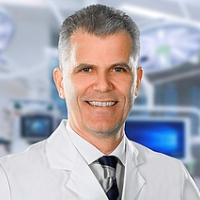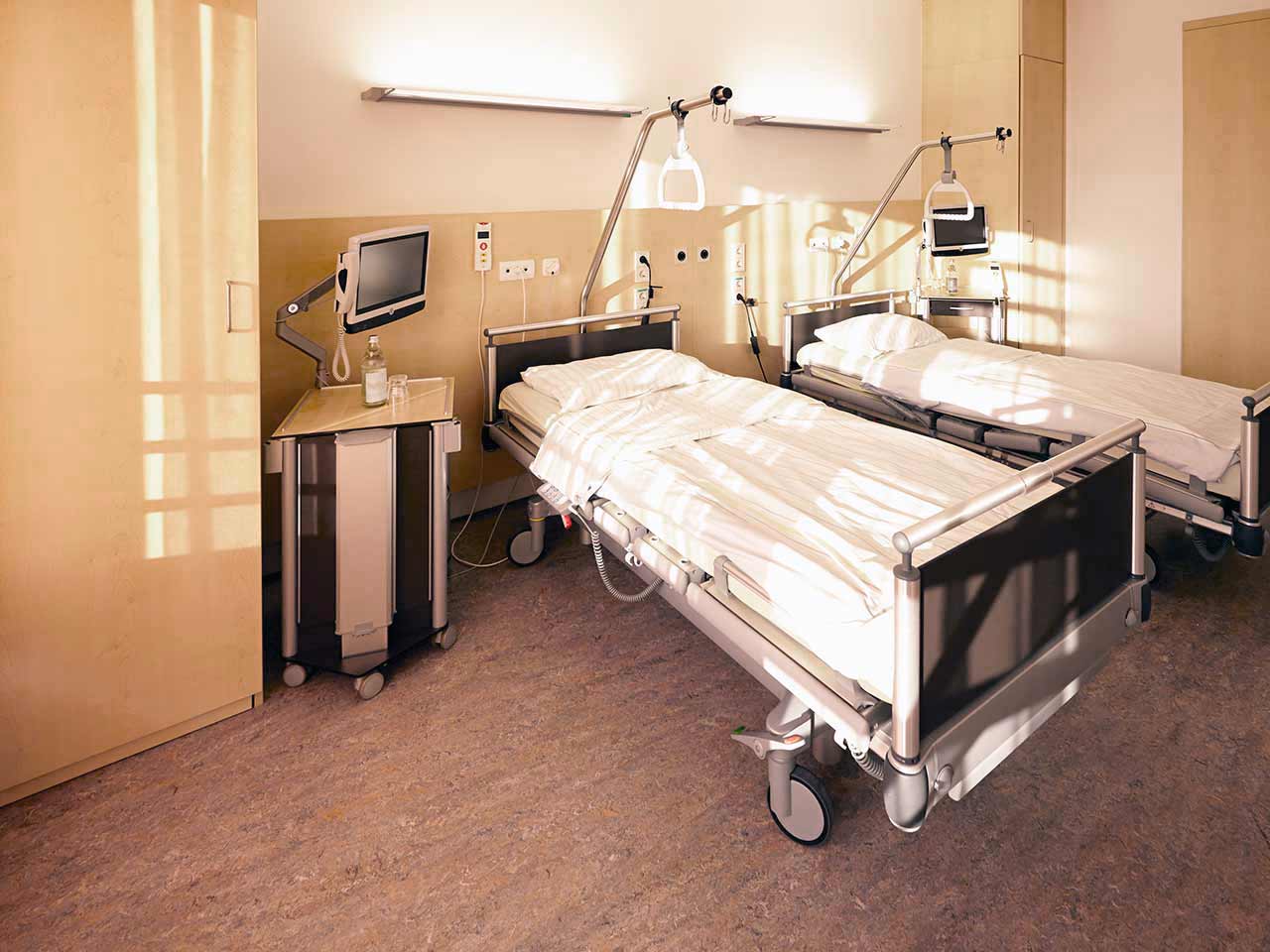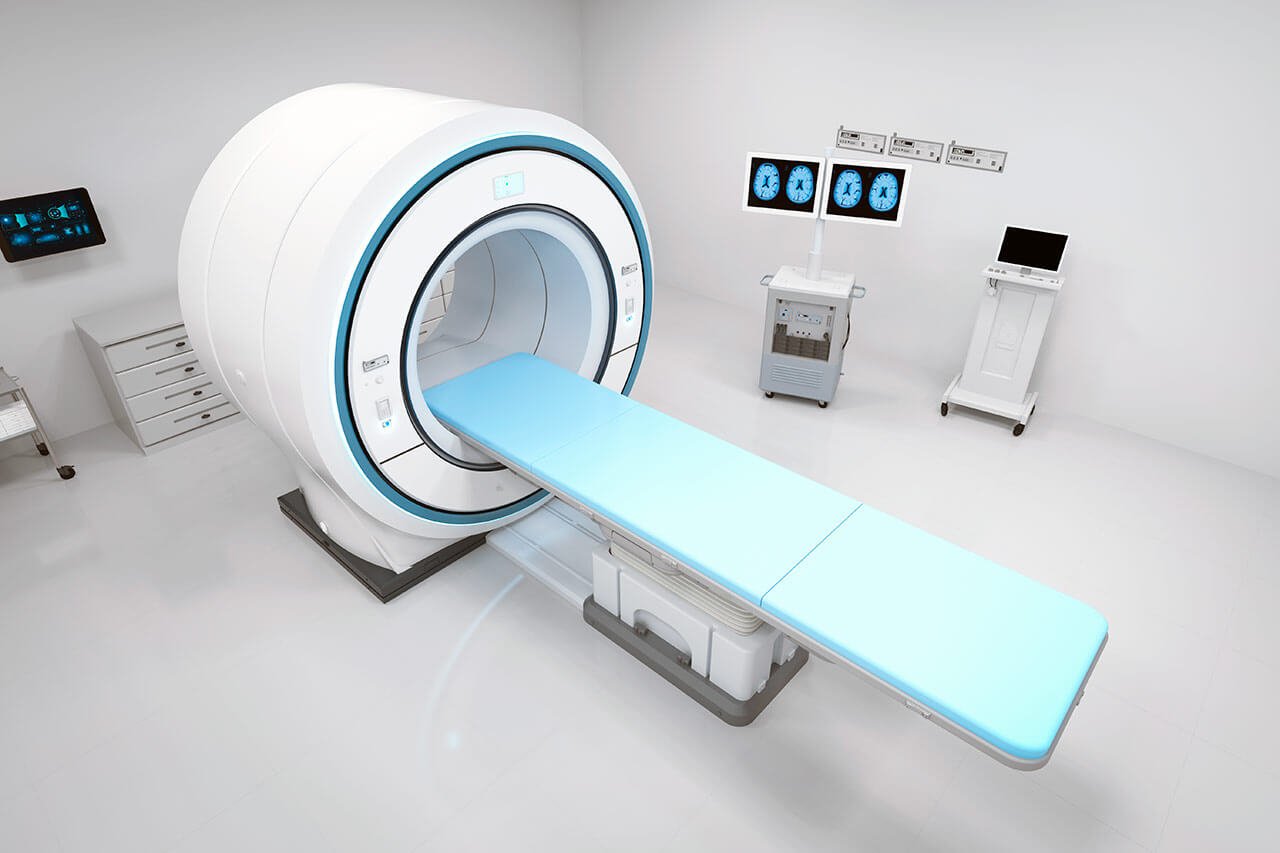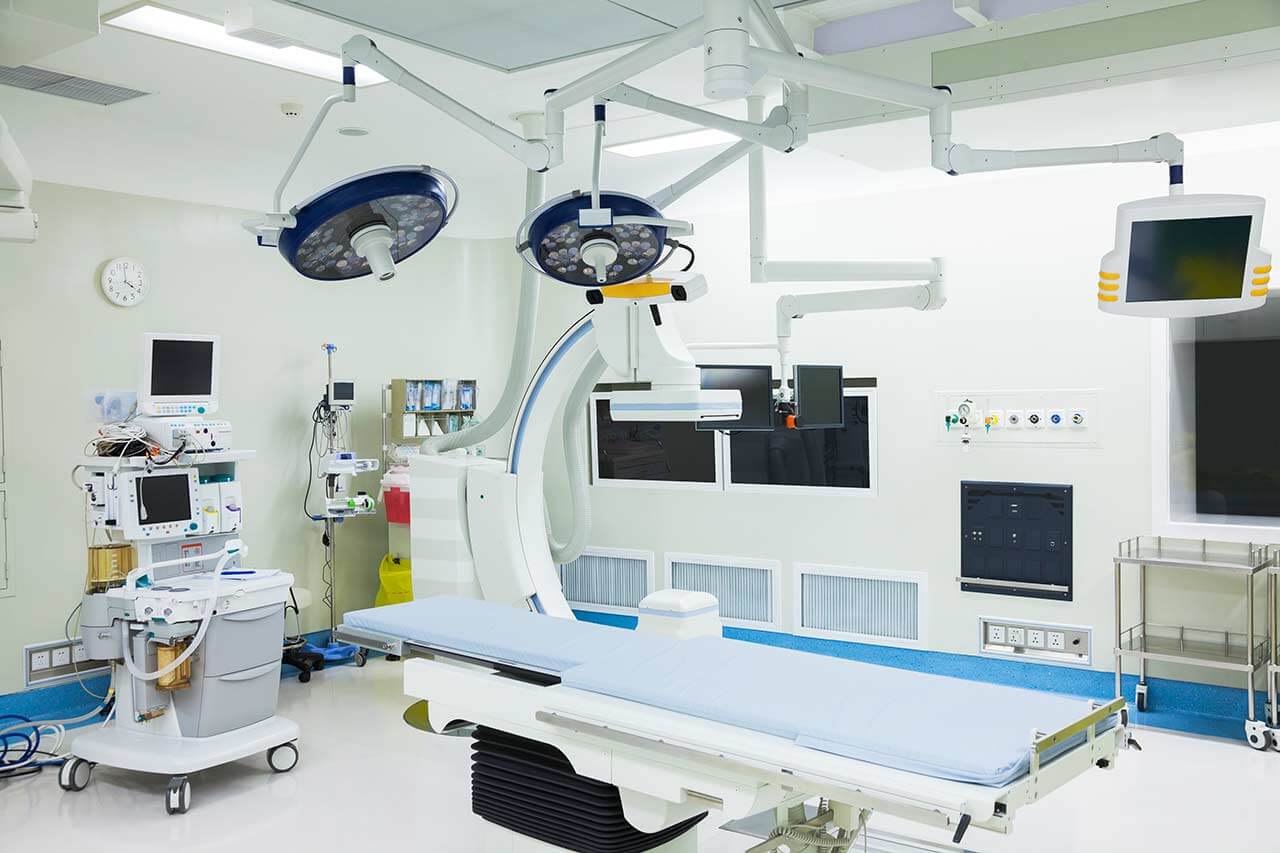
The program includes:
- Initial presentation in the clinic
- clinical history taking
- physical examination
- review of medical records
- laboratory tests:
- complete blood count
- general urine analysis
- biochemical analysis of blood
- TSH-basal, fT3, fT4
- tumor markers
- indicators of inflammation
- indicators blood coagulation
- ultrasound of the tumor
- CT/MRI scan
- preoperative care
- partial tumor resection
- microbiological and histological examination of the removed tissues
- symptomatic treatment
- control examinations
- the cost of essential medicines and materials
- nursing services
- consultation of related specialists
- full hospital accommodation
- explanation of future recommendations
Required documents
- Medical records
- MRI/CT scan (not older than 3 months)
- Biopsy results (if available)
Service
You may also book:
 BookingHealth Price from:
BookingHealth Price from:
About the department
The Department of Adult and Pediatric Orthopedics, Foot Surgery at the ViDia Hospital Karlsruhe provides diagnostics and comprehensive treatment of the entire range of musculoskeletal diseases. The department's team of physicians treats patients of all age groups, ranging from infants to the elderly. The department boasts high success rates in the treatment of large joint diseases. The department houses a specialized Maximum Care Joint Replacement Surgery Center, which has the prestigious EndoCert certificate. Successful operations for partial and total knee and hip joint replacements are performed here. The department's orthopedists also specialize in the treatment of foot and ankle disorders. The health facility is certified by the German Foot and Ankle Association (DAF) in this field. In the area of pediatric orthopedics, young patients are provided with special diagnostic examinations to exclude or timely detect hip dysplasia. The department's doctors also regularly treat children with axial deformities of the lower limbs and spinal curvatures and deformities. The department is equipped with modern infrastructure and state-of-the-art technology for highly effective treatment in accordance with international standards. The specialists strive to provide each patient with individualized treatment, taking into account their wishes. Whenever possible, preference is always given to minimally traumatic therapy. The department is headed by PD Dr. med. Stephan Kirschner.
The main focus of the department's specialization is knee and hip joint replacement surgery. Patients with joint diseases are admitted to the highly specialized Maximum Care Center. Joint replacement surgery is the last-line treatment and can only be used when conservative therapy fails. Before making a decision to perform the intervention, the department's specialists carry out the full range of diagnostic examinations, including laboratory tests, ultrasound, X-ray, CT, or MRI scans. Based on the patient's clinical data, orthopedists determine the optimal type of joint replacement surgery, namely partial or total. When performing partial knee joint replacement, the department's surgeons remove the damaged cartilage and part of the bone tissue while preserving the posterior cruciate ligament and other healthy tissues. Total knee replacement surgery also requires the removal of the posterior cruciate ligament. In cases of partial hip replacement surgery, only the osteophytes and the damaged part of the acetabulum are removed, and the femoral head is preserved. If the patient is prescribed total hip replacement surgery, surgeons replace all elements of the joint. The operation is carefully planned using 3D computer technology. Minimally invasive surgical techniques are used during the intervention, which contributes to the patient's quick recovery in the postoperative period. After the surgery, the patient receives proper care and effective physiotherapy for rapid recovery of mobility.
The department also pays attention to the prevention of knee and hip joint pathologies. These joints endure the greatest load and are susceptible to degenerative changes, especially in adulthood. Common problems with the joints include meniscus degeneration, tears, and injuries. For the restoration of menisci, minimally invasive arthroscopic surgery is performed in the department. The department's orthopedists also frequently deal with knee pathologies such as patellar dislocation, tissue necrosis due to poor blood supply, etc. Preventing irreversible destructive processes in the knee and hip joints is crucial for the department's doctors because it helps preserve the patient's own joint, relieve pain, and improve mobility.
The department's orthopedists also specialize in the treatment of musculoskeletal diseases in children. The specialists focus on ultrasound examinations of newborns to exclude hip dysplasia. Should the diagnosis be confirmed, the department has all the resources to provide the child with the necessary care. In the early stages, doctors use only conservative therapy, for example, the application of special bone bandages. In some cases, conservative treatment does not give the desired result, so doctors may recommend a surgical intervention. The department's orthopedists also have excellent qualifications for repairing O- and X-shaped deformities of the lower limbs, foot deformities, and spinal curvature in children. In most cases, effective treatment can be provided via orthoses and individually elaborated physiotherapy programs.
The department also admits patients with foot and ankle joint diseases. The most common pathology in the clinical practice of the medical center is the valgus deformity of the big toe of the foot (halluх valgus). The treatment of the early stages of this disease involves the use of orthopedic shoes, straightening orthoses, and insoles. In advanced stages, surgery may be required. Following surgery, patients regain their normal mobility and can comfortably wear normal shoes again. The department also treats patients with degenerative diseases of the hindfoot and upper ankle. In such cases, conservative therapy is usually effective, and surgical interventions are rarely required.
The department's key focuses include:
- Adult orthopedics
- Joint replacement surgery (within a certified Maximum Care Center)
- Partial and total knee replacement surgery
- Partial and total hip replacement surgery
- Knee and hip arthroscopic surgery: for example, for meniscus tears, cruciate ligament tears, and hip impingement syndrome
- Intra-articular injections, drug therapy, and physiotherapeutic treatment for large joint diseases
- Joint replacement surgery (within a certified Maximum Care Center)
- Pediatric orthopedics
- Conservative and surgical treatment of hip dysplasia
- Conservative and surgical treatment of O- and X-shaped deformities of the lower limbs
- Conservative and surgical repair of spinal curvatures
- Foot surgery
- Conservative and surgical treatment of the valgus deformity of the big toe of the foot (hallux valgus)
- Conservative and surgical treatment of degenerative hindfoot diseases
- Conservative and surgical treatment of the upper ankle pathologies
- Other medical services
Curriculum vitae
Higher Education and Professional Career
- 1987 - 1989 Military Service in the Bundeswehr Medical Corps, Hannover.
- 1989 - 1996 Medical studies, Hannover Medical School.
- 1996 - 2001 Advanced training in orthopedics, Department of Orthopedics, University Hospital Wuerzburg.
- 2001 - 2003 Physician, Trauma Surgery Clinic in Frankfurt.
- 2003 - 2004 Physician, Department of Trauma Surgery, University Hospital Wuerzburg.
- 2004 Board certification in Orthopedics, Munich.
- 2004 - 2006 Senior Physician, Department of Orthopedics, University Hospital Carl Gustav Carus Dresden.
- 2006 Managing Senior Physician, Department of Orthopedics, University Hospital Carl Gustav Carus Dresden.
- 2008 Board certification in Orthopedics and Trauma Surgery.
- 2010 Additional qualification in Specialized Orthopedic Surgery.
- Since 01.04.2014 Head Physician, Department of Adult and Pediatric Orthopedics, Foot Surgery, ViDia Hospital Karlsruhe.
Positions in Research Organizations
- Executive Board Member of the Working Group on Joint Replacement Surgery (AE) of the German Society for Orthopedics and Trauma Surgery (DGOU).
- Deputy Head of the Working Group of the German Arthroplasty Registry (EPRD).
Memberships in Professional Societies
- Germany Society for Orthopedics and Orthopedic Surgery (DGOOC).
- German Congress of Orthopedics and Traumatology (DKOU).
- Professional Association of Orthopedics and Traumatology (BVOU).
- Working Group on Joint Replacement Surgery (AE) of the German Society for Orthopedics and Trauma Surgery (DGOU).
Photo of the doctor: (c) ViDia Kliniken Karlsruhe
About hospital
The ViDia Hospital Karlsruhe is a modern medical facility with a rich history and traditions. The medical complex is an academic hospital of the University of Freiburg, granting patients access to advanced university medicine and the very latest therapeutic developments. The hospital first opened its doors in 1851 and, since then, has maintained a leading position in the European medical arena. The health facility offers a state-of-the-art technical base, comfortable infrastructure, and highly qualified doctors. All this allows the hospital to provide patients with top-class healthcare in accordance with modern standards. In addition, the hospital's team honors Christian traditions, emphasizing a humane attitude towards the patient and striving to provide understanding and support.
The hospital employs a large team of specialists, consisting of over 3,200 staff members, including 400 highly qualified physicians. The medical team admits more than 50,000 inpatients every year, and about 100,000 patients are diagnosed and treated on an outpatient basis or in a day hospital. More than 3,000 babies are born in the maternity rooms of the Department of Obstetrics every year. More and more patients, including those from abroad, come to the hospital for medical care annually.
The hospital has 24 specialized departments with 25 highly certified, narrowly focused centers integrated into them. A large Cancer Center certified according to the German Cancer Society (DKG) standards also operates here. Thus, one of the main clinical focuses of the medical complex is cancer treatment. The hospital also excels in other specialties, such as general surgery, abdominal surgery, thoracic surgery, orthopedics, cardiology, endocrinology, otolaryngology, pulmonology, gastroenterology, and others. There are 37 operating rooms available here for surgical treatment, the equipment of which corresponds to the highest technical level. Priority is given to performing minimally traumatic operations using minimally invasive, endoscopic, arthroscopic, and endovascular techniques.
The ViDia Hospital Karlsruhe enjoys a high reputation in Germany and far beyond its borders. The health facility successfully combines innovative medicine with Christian values, thanks to which the patient receives not only effective treatment but also care, understanding, and support.
Photo: (с) depositphotos
Accommodation in hospital
Patients rooms
The patients of the ViDia Hospital Karlsruhe stay in comfortable single and double rooms with modern design. Each patient room has an ensuite bathroom with a shower and a toilet. The standard room furnishings include an automatically adjustable bed, a bedside table, a table and chairs, a wardrobe, a telephone, a TV, and a radio. Wi-Fi access is also available in the patient rooms.
Patients can also be accommodated in enhanced comfort rooms. These rooms are very spacious and are additionally equipped with a safe, a mini-fridge, and upholstered furniture.
Meals and Menus
The patients of the hospital are offered three tasty meals a day: breakfast is served buffet-style, and there are several set menus to choose from for lunch and dinner.
If, for some reason, you do not eat all of the foods, you will be offered an individual menu. Please inform the medical staff about your dietary preferences prior to treatment.
Further details
Standard rooms include:
![]() Toilet
Toilet
![]() Shower
Shower
![]() Wi-Fi
Wi-Fi
![]() TV
TV
Religion
There are several chapels on the territory of the hospital. Regular Catholic and evangelical services are held here. Patients can also visit one of the chapels at any time to find a quiet place to pray, if desired.
Accompanying person
Your accompanying person may stay with you in your patient room or at the hotel of your choice during the inpatient program.
Hotel
You may stay at the hotel of your choice during the outpatient program. Our managers will support you for selecting the best option.





